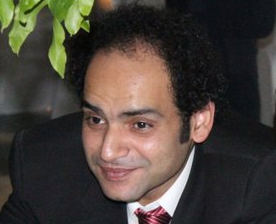By Maha Ghalwash
Egypt’s 2011 Revolution stands as eloquent testimony to Egyptians’ desire for the establishment of a new order which ensures essential fundamental rights for all citizens, as freedom, justice, dignity and equal opportunity. It is in this spirit that the government quickly abolished a problematic institution (Ministry of Information) and overturned several inappropriate laws.
And it is in this spirit too that some groups are demanding the repeal of “Suzanne’s Laws”, a number of laws that regulate family disputes, divorce and custody of children. The liberalist Wafd newspaper explained that these laws constituted the work of the former first lady, and thus were inappropriate, did more harm than good, and accordingly must be abolished.
Islamists particularly single out the khul law, which allows a woman to secure divorce without her husband’s consent on condition that she reimburse him for any money or property he gave her at the time they married and further renounce her rights to alimony and child support. They argue that this law does not reflect the values and customs of Egypt’s very traditional society.
Unsurprisingly, they are joined by disgruntled husbands who, having felt the force of this law, argue that it has only empowered women to destroy their families.
Although these groups present different arguments, they agree on the fact that the khul law is bad for society and must be repealed.
Yet the khul law does not harm society; it should not be abolished.
To explain this position, we might start by pointing to the fact that Islamic Law grants a woman the right to terminate her marriage, and developed a legal instrument for this purpose (khul). This is not surprising, for it reflects and is in line with the Quran’s central objectives, the establishment of justice in society.
Indeed, this objective determined the Quran’s treatment of women. In brief, the Quran advocates equality between the sexes, and accordingly, further urges society to ensure that women live in respect and dignity. Prophet Muhammad articulated these ideas in his Friday sermon while on the Haj, actually devoting much of his sermon to this topic; and thereby leading one religious scholar (Karen Armstrong) to state that this sermon can be viewed as something of a “feminist tract”.
These ideas died rather early in Islamic history. After the Prophet had died, the nascent Muslim state embarked on a series of military campaigns by which they sought to spread the message of Islam. It is then that they came in contact with older and more sophisticated civilizations — those of the Sasanian and Byzantine Empires. They soon learned to substitute their rather primitive Bedouin ways for the habits, tastes and culture of the refined peoples they had conquered. This entailed absorbing and internalizing the conquered peoples’ negative views of women; specifically that women are lesser beings that cannot do without male supervision and guardianship. This kind of environment led Muslim society to overlook or disregard or fail to see the Quran’s egalitarianism.
The problem is that these un-Islamic ideas inform many of the customs and traditions of modern Egyptian society. This reality is not acknowledged or maybe not understood by the majority of Egyptians.
Thus those people who demand the abolishment of the khul on the basis that it fails to conform to the traditions of our society are unknowingly demanding the withdrawal of a legal instrument which would allow women to ensure they live in dignity and respect — fundamental rights of all human beings (rights the Quran fully support).
For the abolishment of the khul only means that a woman seeking divorce would again be at the mercy of the court system, where adjudication of a divorce case can take up to five years and necessarily involves spending a significant sum of money, as good lawyers are hardly cheap. Worse, the court is just as likely to find for as it is to find against the woman plaintiff.
Whatever the outcome, women are disadvantaged: those who win have had to endure the “double whammy” of paying high lawyer fees and of having their lives “on hold” for a lengthy period; while those who lose remain locked in unhappy marriages.
A society that produces these situations, in effect, fails to respect women; it does not accord them the right to live in respect and dignity; it denies women their fundamental rights as human beings.
As Egyptian society is currently engaged in the construction of a new order grounded in democratic, liberalist values of freedom, justice, equal opportunity and the “rule of law”, this is the time to re-examine and revise — and where needed repeal — Egypt’s laws. As for the khul law, it should be left untouched simply because it ensures women’s rights and accordingly constitutes a boon for society.
Dr. Maha Ghalwash is a lecturer in the Department of Political Science, the British University in Egypt. The views expressed in this article are those of the author.



